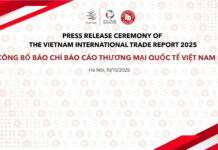The framework governing international trade is admittedly based on multilateral agreements with a quasi-universal scope. For the past two decades, however, this multilateral mechanism has been running out of steam and thus, it could hardly be responsive to various current challenges facing international trade. Of these, digital trade figures prominently. The development of new technologies in combination with the growth of digitally delivered trade in services is generating legal questions that are not immediately answered by the international legal order. In addition, the recent Covid-19 pandemic has made these issues even more significant as it contributes to highlighting the predominant place that digital trade occupies today.
In order to regulate these practices, three dynamics can be observed:
– National attempts at regulation, which are, however, confronted with a limited territorial scope of application;
– Regional attempts at regulation that lack harmonization and coherence; and – Multilateral attempts at regulation that are confronted with diverging interests among the parties concerned.
These difficulties are a fortiori striking given that international organizations (WTO, EU…) and States do not all occupy the same place in the regulation of digital trade and that governing based on the collective preferences (consumer and data protection, opening of digital and technological markets, public morality, transparency, etc.) could hardly facilitate the emergence of international standards and norms.
The plurality of approaches and measures to protect and regulate digital trade raises many questions about their coherence and their ability to coexist in the international legal order.
The international conference on “The governance of digital trade: crossroads of divergent approaches”, organized by the WTO Chair Programme at Foreign Trade University (Viet Nam), in partnership with the Chair Jean Monnet DataGouv – Institute of West: Law and Europe (IODE), University of Rennes (France), the Research Chair on New Challenges of Economic Globalization – Laval University (Canada) and the NODYPEX, propose solutions to address these issues and questions.
Please click here for more information.
For French version, please click here.






